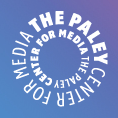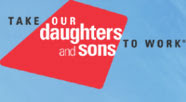 It’s amazing to me how little research exists on teenage and young adult sexuality in contrast to all the hot media air the topic seems to inspire. At this weekend’s Council on Contemporary Families Conference in Chicago, I had a chance to listen in as journalists and sex researchers shared their latest thinking on hook ups, the orgasm gap, and girls gone wild.
It’s amazing to me how little research exists on teenage and young adult sexuality in contrast to all the hot media air the topic seems to inspire. At this weekend’s Council on Contemporary Families Conference in Chicago, I had a chance to listen in as journalists and sex researchers shared their latest thinking on hook ups, the orgasm gap, and girls gone wild.
Hook ups, argued Deb Tolman, founder of the Center for Research on Gender and Sexuality at San Francisco State and a scholar of adolescent sexuality, follow a rather male model of sexual behavior. Friends-with-benefits do not a “relationship” make, and hookups are supposed to occur without those nasty little things called “feelings” getting the way. How did that model get so broadly accepted as ok?, Tolman wanted to know. She added that the question of what “good sex” means is still up for grabs. Who decides? Is it always about orgasms? Kids need adults to talk openly about sexual pleasure in concrete terms.
But back to hookups. At the same time that hookups are part of kids’ sexual landscape, they are not the landscape in its entirety. Tolman reminded the crowd that the recent emphasis on hooking up overlooks the fact that coupledom still exists. Couples just ain’t sexy news. Pepper Schwartz later noted that relationships during adolescence were NEVER easy. So if we’re saying hookups are bad, what are we comparing them to? Young people today get more intimacy from each other than in days of yore. And perhaps that’s not such a bad thing after all.
Tolman feels strongly that the topic of teen sexuality has been reductively portrayed, fueled by moral panic. Laura Sessions Stepp, author of Unhooked, bypassed this (veiled?) critique of her recent work, concentrating instead on the downsides of hooking up. “Young women say they don’t have time for relationships, so they play at relationships — faux ones, aka hook ups — while they’re busy getting everything else done,” said Stepp.
And then came the larger frame. Stanford researcher Paula England commented that we’ve had a sexual revolution without much of a gender revolution in the bedroom. The focus in sex is still, often, male pleasure (orgasm gap being alive and well) and there’s a double standard about women initiating both dates and sex. Compare this to the gender revolution we’ve made in the realms of jobs and education. With sex, we’re still a bit in the dark ages.
England drew on findings from the College Social Life Study, which gathered quantitative data from students at Stanford and Indiana and qualitative data from an online study. According to the numbers, hookups do NOT threaten relationships. It’s true that most hookups don’t lead to relationships, but it’s also true that most relationships are preceded by hookups. When asked if they want to marry someday, under 2% of young women and men said NO; 98% said YES.
As the panel reached its close, my crew–late 30something/early 40something academic women–whispered conspiratorily amongst ourselves. “And what about hook ups in your 30s?” we asked, directed at nobody in particular. After all, hook ups are how many of us grown ups begin our long-term relationships these days. And I’m here to say hook ups ain’t all bad. Heck, I’m marrying mine!
For more on the CCF conference, see coverage in Saturday’s USA Today and Chicago Tribune.









